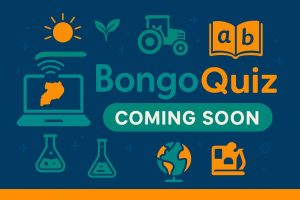Welcome to Understanding Inclusive Education: A Guide for Parents and Teachers in Uganda. seat and relax because we are yet to uncover a big package on catering for learners with different capabilities in our schools.
Inclusive education is a powerful concept that champions the rights of all children to learn together, regardless of their abilities or disabilities. At its heart, inclusive education is about embracing diversity and creating an educational environment that caters to the needs of every student. In Uganda, where every child’s education is a step toward building a brighter future, the push for inclusive education is not just a moral obligation but a necessary leap towards national development.
Contents
Introduction
Imagine a classroom where every child, regardless of their physical or cognitive abilities, learns in harmony with their peers. This is the vision of inclusive education. It’s a vision where barriers to learning are removed, and every child is given an equal opportunity to thrive academically, socially, and personally. In Uganda, this vision is gradually becoming a reality, but widespread understanding and implementation are crucial to its success. This blog aims to shed light on the essence of inclusive education, its benefits, and how parents and teachers can play a pivotal role in its effective implementation.
The Essence of Inclusive Education
Inclusive education is not just about placing children with disabilities in mainstream classrooms; it’s about transforming schools into communities where every child feels valued and supported. It involves adapting the curriculum, teaching methods, and school activities to ensure that all students can participate fully. For example, a school in Kampala introduced sign language as part of its curriculum, enabling deaf students to communicate effectively with their peers and teachers. This small yet impactful change fostered a sense of belonging among students with hearing impairments and raised awareness and empathy among their non-disabled peers.
The Benefits of Inclusive Education
The benefits of inclusive education extend beyond the academic achievements of children with disabilities. It promotes understanding and respect for diversity among all students, preparing them for life in a diverse society. Inclusively educated students are often more empathetic and possess better social skills. Furthermore, inclusive practices encourage innovation in teaching, benefiting all students, not just those with disabilities. A study in a mixed-ability classroom in Gulu showed that the use of visual aids and hands-on learning activities, initially introduced to support students with learning difficulties, enhanced the learning experience for the entire class, leading to improved overall academic performance.
The Role of Parents and Teachers
Parents and teachers are the cornerstone of successful inclusive education. Their attitudes, beliefs, and actions significantly influence its effectiveness. Parents can advocate for inclusive policies, support school initiatives, and foster an inclusive attitude at home. Teachers, on the other hand, need to adopt flexible teaching strategies that accommodate diverse learning needs. Continuous professional development in inclusive education practices is essential for teachers. Organizations like the UNESCO International Institute for Capacity Building in Africa (IICBA) offer resources and training for teachers in Uganda and across Africa, emphasizing the importance of inclusive education and how to implement it effectively.
Practical Steps Towards Inclusive Education
Implementing inclusive education requires commitment and creativity. Schools can start by conducting accessibility audits to identify and eliminate physical barriers. Curriculum adjustments, such as incorporating Braille, sign language, or digital learning tools, can make a significant difference. For instance, the use of educational apps and software that read text aloud can greatly benefit students with visual impairments or dyslexia.
Collaboration with organizations that specialize in inclusive education can also provide valuable support. For example, partnering with the Leonard Cheshire Disability organization can offer schools access to resources and expertise in supporting children with disabilities. Such collaborations not only enhance the school’s capacity for inclusion but can also be an excellent way for blog owners to establish affiliate links with organizations dedicated to educational resources, assistive technologies, and teacher training programs.
Conclusion
Inclusive education in Uganda is more than a legal or educational mandate; it’s a reflection of the society we aspire to build. One where every child, regardless of their background or abilities, has the opportunity to learn, grow, and contribute to their community. Parents, teachers, and school administrators play a crucial role in this transformative process. By embracing inclusive practices, advocating for necessary resources, and continuously learning and adapting, we can ensure that every child in Uganda receives the education they deserve.
As we champion the cause of inclusive education, let’s remember that every effort counts. Whether it’s through adapting teaching methods, improving school infrastructure, or advocating for policy changes, the journey towards inclusivity is a collective one. For those interested in supporting this cause, exploring affiliate opportunities with educational and technological organizations can also contribute significantly to enhancing inclusive education in Uganda.
In embracing inclusivity, we open doors to a world of possibilities for all children, making our society richer, more diverse, and infinitely more compassionate.
FAQs: Embracing Inclusive Education in Uganda
1. What is inclusive education?
Inclusive education refers to an educational approach where all students, regardless of their physical, intellectual, social, or linguistic challenges, are welcomed and supported in mainstream schools. This approach emphasizes equal access to education and encourages a learning environment where all students can thrive together.
2. Why is inclusive education important in Uganda?
Inclusive education is vital in Uganda because it promotes equality and reduces discrimination against children with special needs. It ensures that every child, regardless of their abilities, has the right to quality education, which is crucial for personal development and future opportunities. By fostering an inclusive environment, Uganda can work towards a more equitable society.
3. How does Uganda support inclusive education?
Uganda has made significant strides in promoting inclusive education through policies and programs that support children with special needs. The government, in collaboration with NGOs and international organizations, has developed inclusive education guidelines and frameworks. Many schools have also been equipped with resources and trained teachers to accommodate students with diverse needs.
4. What challenges does inclusive education face in Uganda?
Inclusive education in Uganda faces several challenges, including limited resources, inadequate teacher training, and societal attitudes toward disabilities. Schools often lack the necessary infrastructure and materials to effectively support students with special needs. Additionally, there may be a shortage of specialized educators who can address the diverse needs of these students.
5. How can schools in Uganda improve inclusive education?
Schools in Uganda can improve inclusive education by investing in teacher training, developing accessible infrastructure, and providing appropriate learning materials. Encouraging a culture of acceptance and understanding among students and staff is also crucial. Collaboration with parents and the community can further support inclusive practices.
6. What role do parents play in inclusive education?
Parents play a vital role in inclusive education by advocating for their children’s rights, supporting their learning at home, and working closely with schools to ensure their needs are met. Parental involvement is essential in creating a supportive and inclusive learning environment for all students.
7. Are there any examples of successful inclusive schools in Uganda?
Yes, several schools in Uganda have successfully implemented inclusive education programs. For example, Kampala School for the Physically Handicapped and Wakiso School for the Deaf are well-known for their inclusive practices. These schools offer tailored educational programs and resources to ensure that all students, including those with special needs, can succeed.
8. How can inclusive education benefit all students?
Inclusive education benefits all students by promoting diversity and fostering a culture of empathy and understanding. It helps students develop social skills, tolerance, and the ability to work with peers from different backgrounds and abilities. This inclusive environment prepares students for life in a diverse and interconnected world.
9. What are the future prospects for inclusive education in Uganda?
The future of inclusive education in Uganda looks promising, with ongoing efforts from the government, NGOs, and educators to improve accessibility and quality. Continued investment in teacher training, infrastructure, and awareness campaigns will be essential in ensuring that inclusive education becomes the norm across the country.
10. How can the community support inclusive education in Uganda?
The community can support inclusive education by raising awareness about the importance of inclusivity, challenging negative stereotypes, and advocating for policies that promote equal access to education. Community involvement in school activities and support for families with children who have special needs are also crucial in fostering an inclusive educational environment.



Leave a Reply